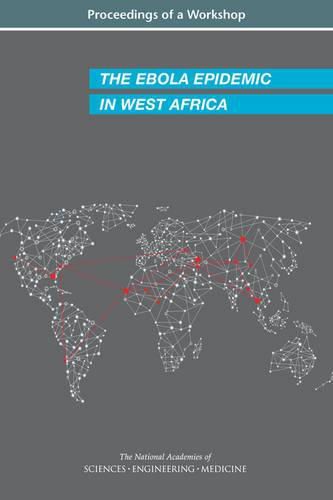Readings Newsletter
Become a Readings Member to make your shopping experience even easier.
Sign in or sign up for free!
You’re not far away from qualifying for FREE standard shipping within Australia
You’ve qualified for FREE standard shipping within Australia
The cart is loading…






The most recent Ebola epidemic that began in late 2013 alerted the entire world to the gaps in infectious disease emergency preparedness and response. The regional outbreak that progressed to a significant public health emergency of international concern (PHEIC) in a matter of months killed 11,310 and infected more than 28,616. While this outbreak bears some unique distinctions to past outbreaks, many characteristics remain the same and contributed to tragic loss of human life and unnecessary expenditure of capital: insufficient knowledge of the disease, its reservoirs, and its transmission; delayed prevention efforts and treatment; poor control of the disease in hospital settings; and inadequate community and international responses.
Recognizing the opportunity to learn from the countless lessons of this epidemic, the National Academies of Sciences, Engineering, and Medicine convened a workshop in March 2015 to discuss the challenges to successful outbreak responses at the scientific, clinical, and global health levels. Workshop participants explored the epidemic from multiple perspectives, identified important questions about Ebola that remained unanswered, and sought to apply this understanding to the broad challenges posed by Ebola and other emerging pathogens, to prevent the international community from being taken by surprise once again in the face of these threats. This publication summarizes the presentations and discussions from the workshop.
$9.00 standard shipping within Australia
FREE standard shipping within Australia for orders over $100.00
Express & International shipping calculated at checkout
The most recent Ebola epidemic that began in late 2013 alerted the entire world to the gaps in infectious disease emergency preparedness and response. The regional outbreak that progressed to a significant public health emergency of international concern (PHEIC) in a matter of months killed 11,310 and infected more than 28,616. While this outbreak bears some unique distinctions to past outbreaks, many characteristics remain the same and contributed to tragic loss of human life and unnecessary expenditure of capital: insufficient knowledge of the disease, its reservoirs, and its transmission; delayed prevention efforts and treatment; poor control of the disease in hospital settings; and inadequate community and international responses.
Recognizing the opportunity to learn from the countless lessons of this epidemic, the National Academies of Sciences, Engineering, and Medicine convened a workshop in March 2015 to discuss the challenges to successful outbreak responses at the scientific, clinical, and global health levels. Workshop participants explored the epidemic from multiple perspectives, identified important questions about Ebola that remained unanswered, and sought to apply this understanding to the broad challenges posed by Ebola and other emerging pathogens, to prevent the international community from being taken by surprise once again in the face of these threats. This publication summarizes the presentations and discussions from the workshop.